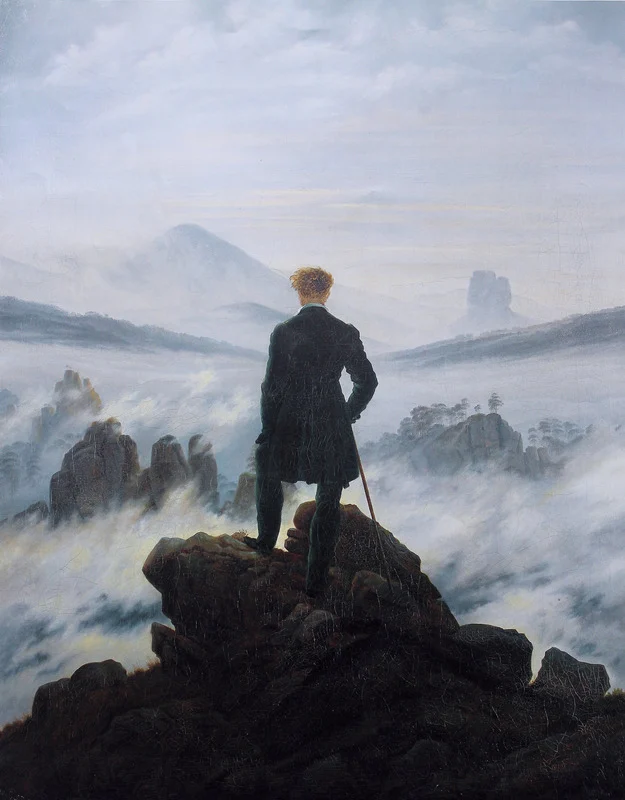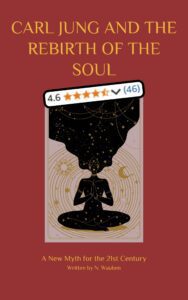In a previous article I have listed the top 5 scariest philosophers of all time. This list was based on the extend in which these philosophers succeeded in making us feel insecure of our own existence. Luckily, there are also some more positive and encouraging philosophers out there, although they sometimes appear to be the minority.
In this article I will list the top 5 most encouraging philosophers, based on the extend in which they succeed in encouraging us that there is value and meaning to life, and that we can make something of our existence on earth, whatever situation we might find ourselves in. It must be noted that this list is only based on the philosophers that I have encountered so far. In case there are any philosophers that you would add to this list, then please let me know.
In case you are looking for some further encouragement, you can try some books of these encouraging philosophers for free with a free Audible Trial Membership.
Table of Contents
Most Encouraging Philosophers #1 Viktor Frankl
Viktor Frankl was a Holocaust survivor. In his book Man’s Search for Meaning, Viktor Frankl shared the horrendous experiences that he had to go through while being imprisoned in a concentration camp. It is therefore all the more interesting that Viktor Frankl, after experiencing such hardships, still managed to remain so hopeful and encouraging.
Viktor Frankl believed that, even in the direst moments, such as being imprisoned in a concentration camp, life can still be meaningful. This is the case, according to Viktor Frankl, because meaning is derived from taking action to deal with the problems that one is facing. It is not important what we want from life, but what life wants from us: “We had to learn ourselves and, furthermore, we had to teach the despairing men, that it did not really matter what we expected from life, but rather what life expected from us.” (Man’s Search for Meaning, p.85)
According to Viktor Frankl we should answer life by taking the right actions. By doing so we can face even the most difficult circumstances: “Our answer must consist, not in talk and meditation, but in right action and in right conduct. Life ultimately means taking the responsibility to find the right answer to its problems and to fulfil the tasks which it constantly sets for each individual.” (Ibid)
Viktor Frankl observed that those that managed to succeed in facing these tasks and challenges presented by life head on, were much more likely to survive the horrors of the concentration camps. Meaning is derived from the way in which we deal with the problems that we are facing.

Most Encouraging Philosophers #2 Joseph Campbell
Joseph Campbell is one of my most favourite authors and philosophers of all time. I believe that this is in part due to the fact that his philosophies are encouraging and positive. Even some of the scariest philosophies out there are no match for the encouragement provided by Joseph Campbell.
One such philosophy, for which the ideas of Joseph Campbell can provide a positive twist, is the philosophy presented by Ernest Becker. Ernest Becker, in his book The Denial of Death, argued that there exists an important paradox within humanity. On the one hand man exists largely separated from nature and through his consciousness is almost a god. However, on the other hand, man is still merely a mortal animal. Ernest Becker even argued that we have created entire religions and societies merely for us to be able to live with this horrible paradox.
I have written an extensive article on how Joseph Campbell provides a solution to this paradox. Joseph Campbell argued that we most look for a new co-ordinated myth that can increase man’s connection with the world: “Not the animal world, not the plant world, not the miracle of the sphere, but man himself is now the crucial mystery. Man is that alien presence with whom the forces of egoism must come to terms, through whom the ego is to be crucified and resurrected, and in whose image society is to be reformed.” (The Hero with a Thousand Faces, p.337)
This ‘image’ should, as indicated by Joseph Campbell, not be based on the narrow-minded ideals of a single nation or culture, but instead on something that connects all of mankind: “for the ideals and temporal institutions of no tribe, race, continent, social class, or century can be the measure of the inexhaustible and multifariously wonderful divine existence that is the life in all of us.” (Ibid)
Furthermore, although the image might be the same for all of mankind, the symbols that represent the image might differ depending on local circumstances and cultures: “Therefore it is necessary for men to understand, and be able to see, that through various symbols the same redemption is revealed. […] The way to become human is to recognize the lineaments of God in all of the wonderful modulations of the face of man.” (The Hero with a Thousand Faces, p.336)
In this sense he did not see myths and religions as a mere coping mechanism to deal with the ultimate paradox of life. Instead, Joseph Campbell saw myths and mysteries as a way to connect with the world and with ourselves I.E, to connect the worm and god within us.
Most Encouraging Philosophers #3 Henry David Thoreau
Henry David Thoreau was another extremely encouraging philosopher. We often tend to believe that we need to acquire a certain amount of riches or achieve a certain role or status for us to be happy. Henry David Thoreau is encouraging in the sense that he believed that material possessions are not a necessary requirement for fulfilment or happiness.
According to Henry David Thoreau, there are even certain advantages to not being rich. Namely, that riches will only provide you with the ability to accumulate things that you do not need. These possessions might then even distract one from the most important experiences of life:
“If you cannot buy books and newspapers, for instance, you are but confined to the most significant and vital experiences; you are compelled to deal with the material which yields the most sugar and the most starch. It is life near to the bone where it is sweetest. You are defended from being a trifler […] Superfluous wealth can buy superfluities only. Money is not required to buy one necessary of the soul.” (Walden, p.291)
Moreover, Henry David Thoreau believed that every individual is capable to consciously improve his or her own life: “I know of no more encouraging fact than the unquestionable ability of man to elevate his life by a conscious endeavour.” (Walden, p.80)
Thoreau believed that this could be achieved through adjusting the way in which one experiences and sees the world: “It is something to be able to paint a particular picture, or to carve a statue, and so to make a few objects beautiful; but it is far more glorious to carve and paint the very atmosphere and medium through which we look, which morally we can do.” (Ibid)
Most Encouraging Philosophers #4 Marcus Aurelius
Whereas Henry David Thoreau focused on improving his life by going to the woods and living in solitude with only a few possessions. Marcus Aurelius, Roman emperor from 161 to 180, approached this improvement from a different angle.
Marcus Aurelius was not able to go to a forest and live all by himself. Instead, he was surrounded by riches and all the temptations with which these unlimited resources come hand in hand. Instead of encouraging us to live properly with limited means. Marcus Aurelius taught us how to live properly with unlimited means and the ability to satisfy whichever wish one had. He argued that these possessions and capabilities do not equate happiness. Instead, he argued that happiness should come from within.
Similarly to Henry David Thoreau, Marcus Aurelius believed that one could carve one’s own atmosphere and that one is capable of designing one’s own thoughts. If negative thoughts arise because of a certain event, these thoughts do not arise from the event itself, but from our perspective of the event: “If your distress has some external cause, it is not the thing itself that troubles you, but your own judgement of it – and you can erase this immediately. If it is something in your own attitude that distresses you, no one stops you from correcting your view.” (Mediations, Book Eight, Paragraph 47)
Marcus Aurelius encouraged us to change how we interpret these events. We can interpret them in whichever way we want and thereby carve our own atmosphere.
Most Encouraging Philosophers #5 Thomas Carlyle
In His book Sartor Resartus, Thomas Carlyle made one of the characters of the book (Teufelsdröckh) go through an interesting and encouraging transformation. Teufelsdröckh, experiencing an extreme existential period in which he rejects al meaning (The everlasting no), manages to entirely change his perspective, culminating in the everlasting yes. Thomas Carlyle encourages us that such a transformation is possible and even logical for ever one to achieve.
Thomas Carlyle, through his character Teufelsdröckh, described a mode of constant fear, resulting from an existential crisis: “I lived in a continual, indefinite, pining Fear; tremulous, pusillanimous, apprehensive of I knew not what: it seemed as if all things in the Heaves and the Earth were but boundless Jaws of a devouring Monster, wherein I, palpitating, waited to be devoured.” (Sartor Resartus, p.128) These fears and insecurities culminated in an outlook towards life characterized by an ‘everlasting no’: “To me the Universe was all void of Life, of Purpose, of Volition, even of Hostility: it was one huge, dead, immeasurable Steam-engine, rolling on, in its dead indifference, to grind me limb from limb.” (Sartor Resartus, p.127) Teufelsdröckh concluded that life is merely an ‘air-image’.
All at once, however, a thought was presented to Teufelsdröckh:
“Wherefore, like a coward, dost thou for ever pip and whimper, and go cowering and trembling? Despicable biped! What is the sum-total of the worst that lies before thee? Death? Well, Death; and say the pangs of Tophet too, and all that the Devil and Man may, will, or can do against thee! Hast thou not a heart; canst thou not trample Tophet itself under thy feet, while it consumes thee? Let it come, then; I will meet it and defy it.” (Sartor Resartus, p.129)
This appears to be a logical conclusion drawn from the idea that the world is only an ‘air-image’: why should one live in fear? This thought of Teufelsdröckh resulted in him rejecting the ‘everlasting no’ and him protesting his insecurities and fears: “Thus had the everlasting no pealed authoritatively through all the recesses of my Being, of my Me; and then it was it that my whole Me stood up, in native God-created majesty, and with an emphasis recorded its Protest.” (Ibid) According to Carlyle this protest is one of the most important events of life: “Such a Protest, the most important transaction in Life, may that same Indignation and Defiance, in a psychological point of view, be fitly called.” (Ibid)
Conclusions
Most of the philosophers on my list of the top 5 scariest philosophers questioned the existence of any inherent meaning to our lives. These top 5 encouraging philosophers do not necessarily deny this lack of meaning. Instead, they encourage us to make the best of this situation: to create meaning even if meaning appears to be lacking all together. All 5 of the philosophers listed above encourage us that every individual is capable of doing so i.e., capable of carving one’s own atmosphere.
Thank you for reading! Please let me know which philosophers you would add or remove from this list.

